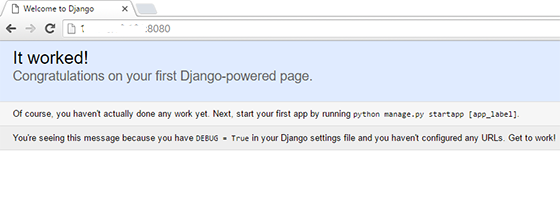
In this tutorial, we will show you how to install and configure Django on Ubuntu 20.04 LTS. For those of you who didn’t know, Django is a popular Python framework for writing web applications. Web frameworks like Django provide a set of tools that helps the developer to write the application faster as the framework takes care of the internal structure, thus the developer needs to take care of the application development only. Django is free and open-source software.
This article assumes you have at least basic knowledge of Linux, know how to use the shell, and most importantly, you host your site on your own VPS. The installation is quite simple and assumes you are running in the root account, if not you may need to add ‘sudo‘ to the commands to get root privileges. I will show you through the step-by-step installation of Django on an Ubuntu 20.04 (Focal Fossa) server. You can follow the same instructions for Ubuntu 18.04, 16.04, and any other Debian-based distribution like Linux Mint.
Prerequisites
- A server running one of the following operating systems: Ubuntu 20.04, 18.04, and any other Debian-based distribution like Linux Mint or elementary OS.
- It’s recommended that you use a fresh OS install to prevent any potential issues.
- A
non-root sudo useror access to theroot user. We recommend acting as anon-root sudo user, however, as you can harm your system if you’re not careful when acting as the root.
Install Django on Ubuntu 20.04 LTS Focal Fossa
Step 1. First, make sure that all your system packages are up-to-date by running the following apt commands in the terminal.
sudo apt update sudo apt upgrade
Step 2. Installing Python on the Ubuntu system.
Run the following command to install Python:
sudo apt install python3 python3-pip
Now check the python and pip command as below:
$ python3 -V Python 3.8.2
$ pip3 -V pip 20.0.2 from /usr/lib/python3/dist-packages/pip (python 3.8)
Step 3. Installing Django on Ubuntu 20.04.
- Install Django using pip.
Run the following command:
pip install Django==3.1.2
To verify the Django version, run:
django-admin --version
- Install Django using a Git repository (our revision-control system).
Get it using this shell command, which requires Git:
git clone https://github.com/django/django.git
Step 4. Create a sample Django project.
Now that the Django framework has been installed, you can give it a test drive by creating a sample project:
cd ~ django-admin startproject myidrootproject
The command above will create a directory project in your working directory ~, and store all necessary files within.
Run the commands below in sequence to get your application started. Follow the instructions on the screen to provide the superuser’s credentials:
cd myidrootproject/ python3 manage.py migrate python3 manage.py createsuperuser python3 manage.py runserver 0.0.0.0:8000
Step 5. Accessing Django.
Django will be available on HTTP port 8080 by default. Open your favorite browser and navigate to http://your-domain.com:8000 or http://server-ip-address:8000/admin

Congratulations! You have successfully installed Django. Thanks for using this tutorial for installing the Django web framework on Ubuntu 20.04 LTS Focal Fossa. For additional help or useful information, we recommend you check the official Django website.